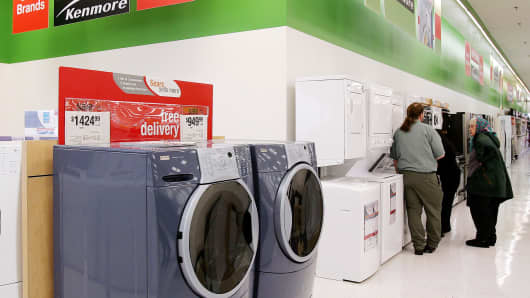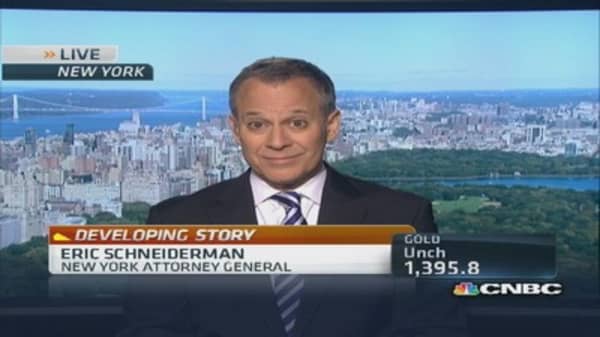Recapping the day's news and newsmakers through the lens of CNBC.
Durable goods slowdown could soften Fed taper
Notes:
We all like to think the economy is getting better, but then something like Monday's dismal durable goods report comes along to remind us that things are still pretty shaky. Orders for long-lasting products had their biggest drop in nearly a year, down a worse-than-expected 7.3 percent in July and reversing three months of gains.
The numbers suggest manufacturing will not bounce back as fast as many economists had anticipated. Of special concern was a 3.3 percent decline in nondefense capital goods orders excluding aircraft, a gauge of business spending plans. Some analysts now think weak data like these will lead the Federal Reserve to reduce its tapering next month, making a smaller cut in bond purchases than many had expected.
Quotes:
"This is a big, big set of red lights at the durable goods intersection."—CNBC's Rick Santelli
"You can't even blame it on seasonality or some statistical fluke. This was the most high-profile data point this week, and the result greatly complicates the taper talk."—CNBC's Bob Pisani
"There's a lot of people thinking that maybe bad news would actually be good news [for financial markets] at this point in the economic cycle. ... Maybe concerns about Fed tapering start to moderate."—Brian Levitt, senior economist Oppenheimer Funds




